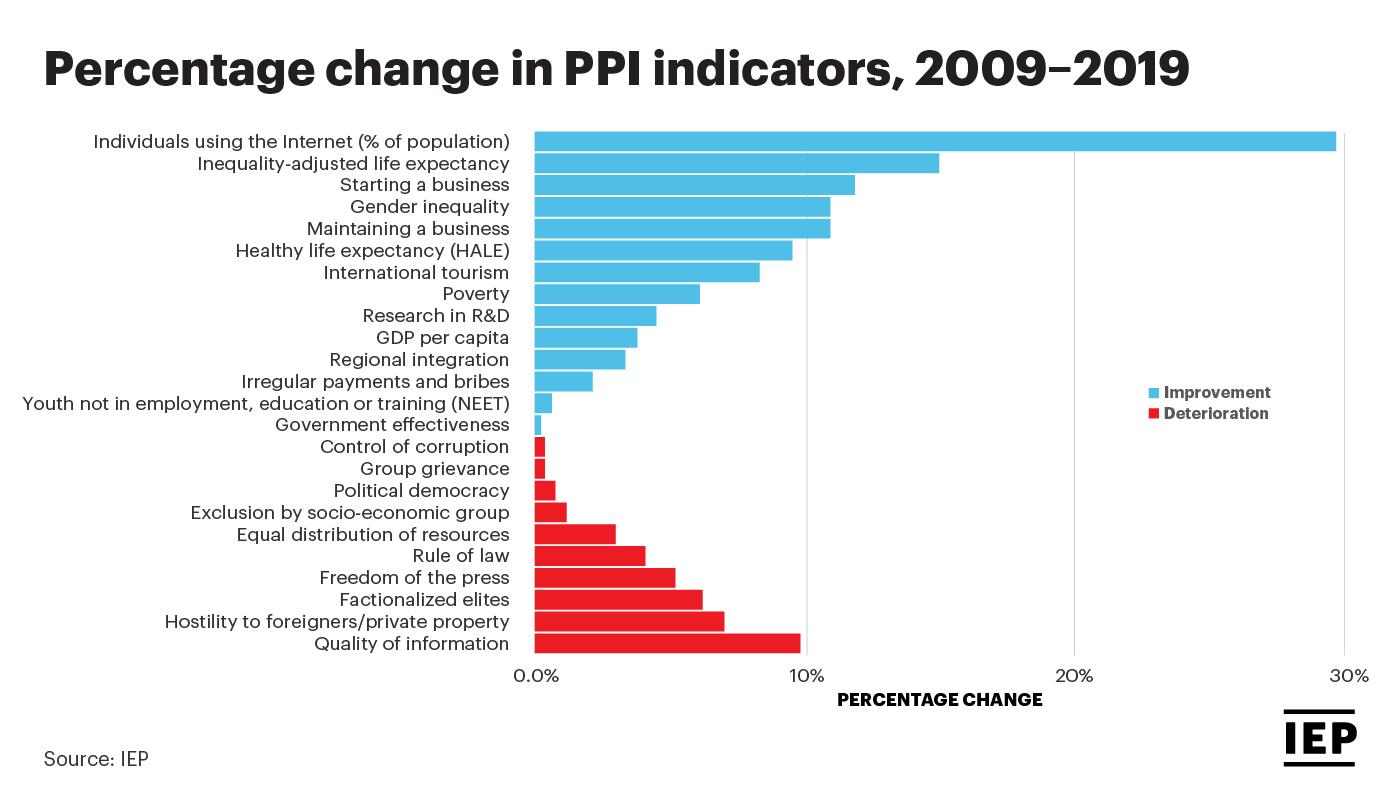On World Press Freedom Day we are reminded that journalists and the information they share can help societies make better decisions.
In a hyper-connected and increasingly digital world, constant access to information has the potential to increase levels of Positive Peace, but the quality of that information is crucial.
On World Press Freedom Day in 2021, UNESCO’s chosen theme — Information as a Public Good — underlines the importance of verified and reliable information and highlights the important role journalists play in producing and sharing this information, while also tackling misinformation and other harmful content.
According to research from the Institute for Economics & Peace (IEP), access to the internet and information has been growing, with good outcomes for the global Positive Peace score, which has improved by 3.3% since 2009.
However, on closer inspection, IEP’s findings show that an increase in disinformation is undermining those gains.
The Positive Peace Index (PPI) shows that the average score for the individuals using the Internet indicator has improved by 29.5 per cent since 2009, indicating a rapid increase in access to information.
Along with this, the use of disinformation by governments — the quality of information indicator — has deteriorated with the access to technology, and as such the PPI score for this indicator has shown a deterioration of 9.8 per cent over the period.

According to the Oxford Internet Institute, a recent report found that organised social media manipulation campaigns operate in 81 countries, up from 70 in 2019. More governments are hiring professional, private agencies to harness the power of social media to spread political propaganda, suppress freedom of speech and freedom of the press.
In addition, the 2021 World Press Freedom Index finds that journalism — an important antidote to disinformation — is completely or partly blocked in 73% of the 180 countries assessed. According to the index, the pandemic has blocked access for journalists working in the field, making it extremely difficult for reporters to research and report stories.
The Free Flow of Information Pillar forms an integral part of IEP’s Positive Peace framework. Free and independent media disseminates information in a way that leads to greater knowledge and helps individuals, business and civil society make better decisions, which leads to better outcomes and more rational responses in time of crisis.
IEP’s Positive Peace framework identifies eight key socio-economic factors that build and sustain stable, long-lasting peace. The eight inter-related pillars work together to build the attitudes, structures and institutions that allow societies to flourish, and include: Well-Functioning Government; Equitable Distribution of Resources; Free Flow of Information; Good Relations with Neighbours; High Levels of Human Capital; Acceptance of the Rights of Others; Low Levels of Corruption; Sound Business Environment.
Positive Peace is defined by IEP as the attitudes, institutions and structures that create and suatin peaceful societies.